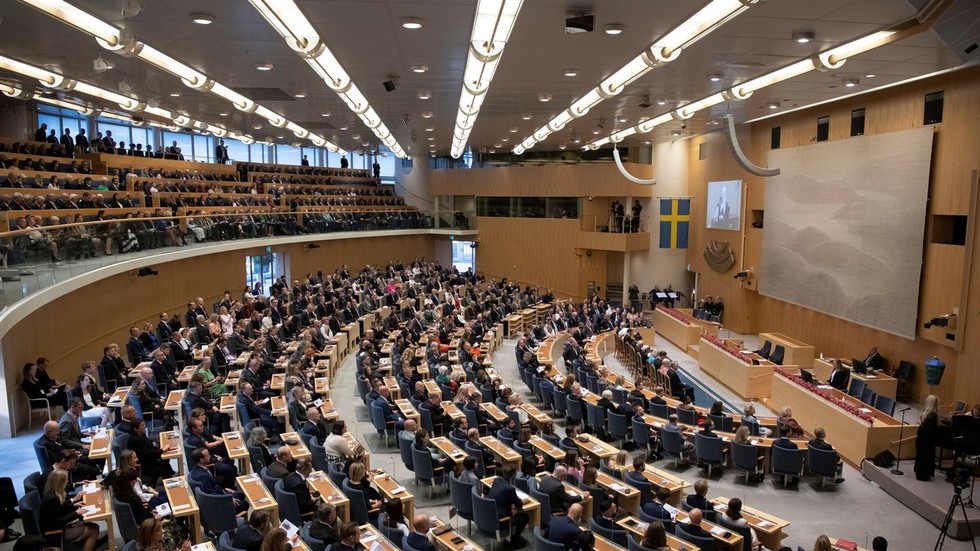
Türkiye has been blocking Stockholm’s accession to the US-led bloc, accusing the country of harboring Kurdish terrorists

Swedish Parliament © Getty Images / David Lidstrom
The Swedish parliament adopted a new counterterrorism law on Wednesday that criminalizes membership in terrorist organizations. The step is seen as the latest attempt to address concerns raised by Türkiye, which has been blocking the Nordic nation’s NATO membership bid.
The legislation is set to come into force on June 1 and will grant the authorities more power to detain and prosecute people suspected of supporting or being part of recognized terrorist groups.
Those found guilty of participating in terrorist activities or cooperating with terrorists could face up to four years in prison, and up to eight years if the crimes are deemed especially serious. Among the offenses are the supplying of weapons, ammunition, and explosive material to such groups, providing them or renting them land and property, as well as traveling abroad with the intent of joining such organizations.
The introduction of the new law comes as Sweden awaits the full ratification of its NATO membership application. Stockholm submitted its bid last May along with neighboring Finland, with both citing the perceived threat from Russia amid the military operation in Ukraine.

Read more
However, in order to be accepted into the bloc, the bid must be supported and ratified by all current member states. In the cases of Sweden and Finland, the process was blocked by Hungary and Türkiye. Ankara accused the two countries of supporting Kurdish “terrorist groups” such as the Kurdistan Workers’ Party (PKK), and demanded they both publicly denounce these organizations and kick them out of their countries.
Finland’s bid was eventually ratified by both Ankara and Budapest in late March after Helsinki adopted stricter anti-terrorism laws. The country officially became the 31st NATO member last month.
Sweden’s membership, on the other hand, has remained in limbo. Ankara insists that Stockholm has failed to do enough to address its grievances, while Hungarian Prime Minister Viktor Orban has accused the Swedish government of “spreading blatant lies” about his country.




